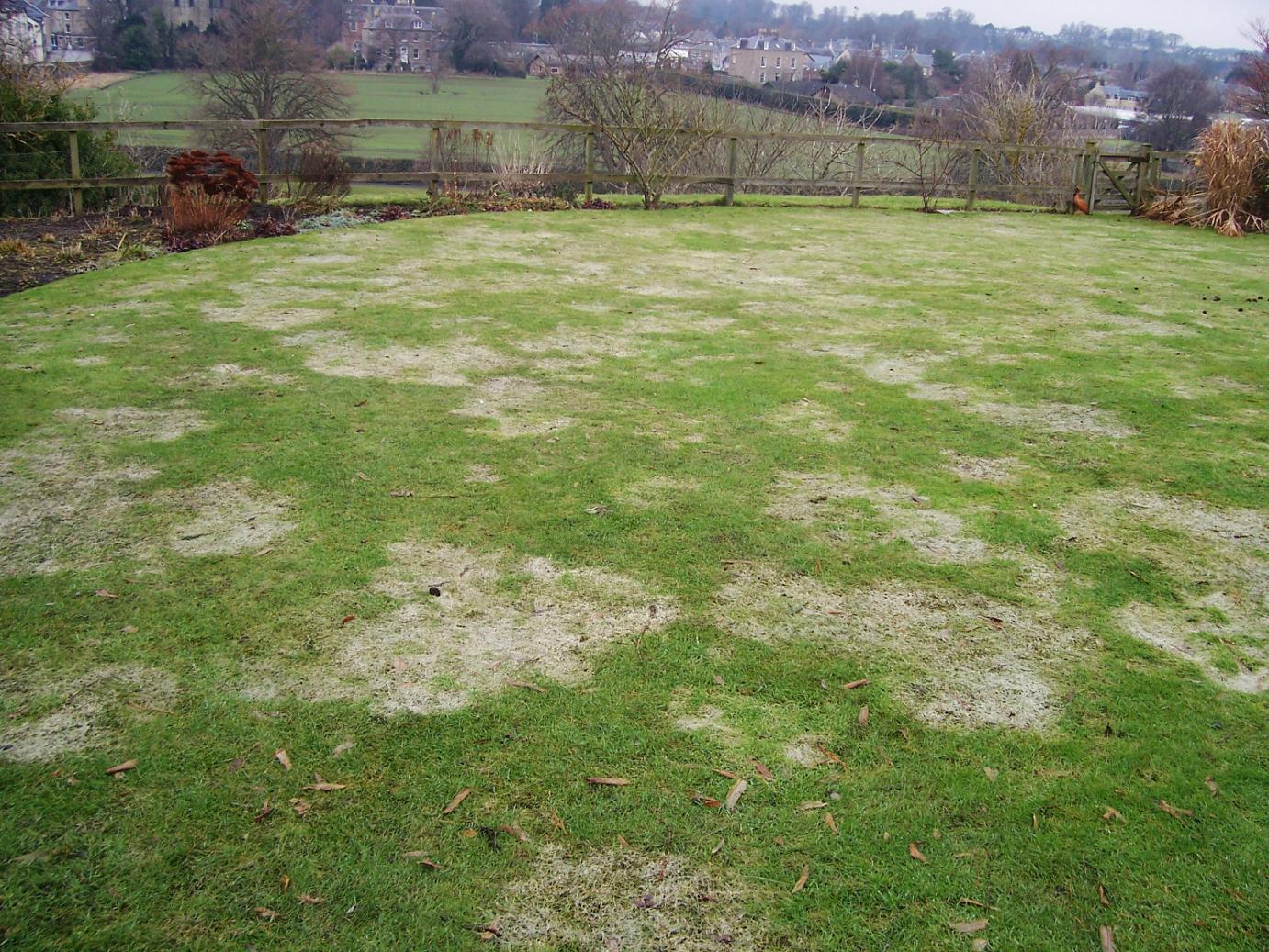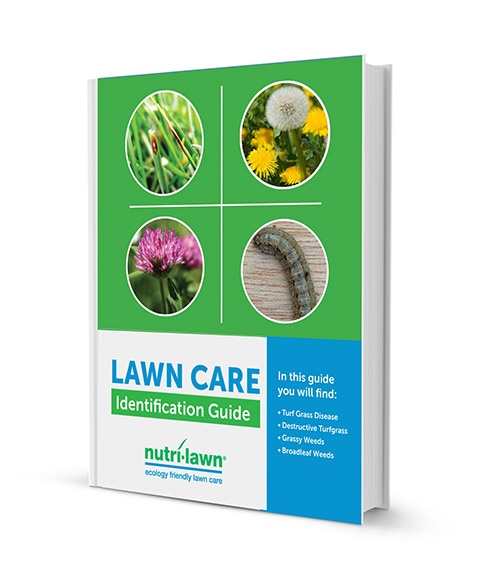lawn disease
PREVENTION & CONTROL
Lawn diseases are generally caused by pathogenic fungi that occur naturally in the thatch and soil, however, only a small number of fungi varieties cause disease symptoms. The vast majority of fungi are beneficial and contribute to the biodegradation of dead plant material as well as the breakdown of complex organic compounds into useable nutrients that the plants can absorb.
Symptoms of disease in a lawn can appear in a number of ways, depending on the fungi. You might see brown circular spots, dead rings, irregular patches growing on grass blades, or the roots may appear black and rotten.
Not sure if you have a weed problem or lawn disease?
- Find your local Nutri-Lawn for fast help.
- Learn more about turfgrass diseases.
- See how Nutri-Lawn's weed control services keep your grass healthy.
- Get your beautiful grass back with lawn renovation.
Request A Quote
Fill in the form below and we'll have a customer representative contact you!
How To Avoid Lawn Disease
- Make sure the lawn is being properly irrigated. Overwatering creates an environment perfect for fungal diseases to spread. Make sure the surface of the lawn is allowed to dry out between waterings, as this will kill or inhibit the disease.
- Water in the early morning. Watering in the afternoon results in a significant amount of water being lost to evaporation, leading to shallow root development and ultimately, poor drought tolerance. Watering in the evening results in the lawn staying wet for the entire night before the sun can dry off the lawn the next day. This wet environment is conducive to disease development.
- Sharpen your mower blade. A dull mower blade shreds the leaf blades rather than cuts them. The shredded blade does not heal well and is easily infected by disease organisms. The shredded blades also brown off and make your lawn look brown and unhealthy.
- Mow at the proper height and frequency. Avoid cutting too low as this will stress out the lawn and make it more susceptible to disease. Also, mow frequently enough so that only one third of the leaf blade is removed at each mow. If you wait too long between mowings, and then cut low, the lawn will go into a state of shock, making the lawn more disease susceptible.
- Aerate the soil annually. Core Aeration reduces soil compaction and allows water and nutrients to move deeper into the soil, encouraging deeper roots. This results in a healthier lawn better able to resist disease. The soil cores that are removed from the lawn breakdown and filter into the thatch layer and modify the thatch and introduce beneficial microbes that compete with disease causing organisms.
- Ensure a balanced diet of fertilizer. Too much fertilizer can create succulent leaves that are more susceptible to disease, while too little fertilizer can create a weak unhealthy lawn. Our programs modify the type and quantity of fertilizers applied throughout the season to ensure a balanced diet.
- Overseed or slitseed with new, disease-resistant cultivars of turfgrass. If your lawn suffers from a reoccurring disease problem, then we strongly recommend that you overseed or slitseed with some new lawn seed that is resistant to the problem disease.
Think your lawn might be experiencing symptoms of turfgrass disease? Talk to your local Nutri-Lawn so they can help diagnose the issue and recommend the best course of action.

We Nourish Lawns and Lives
Postal Code or Zip Code Not Found
Please select your city from the list below
- Airdrie
- Aldersyde
- Balzac
- Bearspaw
- Beiseker
- Black Diamond
- Bragg Creek
- Calgary
- Cheadle
- Chestermere
- Cochrane
- Conrich
- Crossfield
- Dalmead
- Dalroy
- Delacour
- Dewinton
- Elbow Valley
- Foothills
- Greater Calgary
- Heritage Pointe
- High River
- Indus
- Irricana
- Janet
- Kathryn
- Keoma
- Langdon
- Lyalta
- Madden
- Millarville
- Mountainview
- Okotoks
- Oothills
- Prarie Royal
- Priddis
- Prince Of Peace
- Redwood Meadows
- Rockyview
- Shepard
- Springbank
- Strathmore
- Symons Valley
- Turner Valley
- Wheatland
- Abbotsford
- Aldergrove
- Brentwood Bay
- Burnaby
- Chemainus
- Chilliwack
- Cobble-Hill
- Comox
- Coquitlam
- Cordova Bay
- Courtenay
- Delta
- Kamloops
- Kelowna
- Ladysmith
- Lake Country
- Langley
- Lantzville
- Maple Ridge
- Mill Bay
- Mission
- Nanaimo
- New Westminster
- North Saanich
- North Vancouver
- Parksville
- Peachland
- Penticton
- Pitt Meadows
- Port Coquitlam
- Port Moody
- Qualicum Beach
- Richmond
- Salmon Arm
- Shawnigan Lake
- Sidney
- South Island
- Summerland
- Surrey
- Vancouver
- Vancouver Area
- Vernon
- Victoria
- West Kelowna-Westside
- West Vancouver
- White Rock
- Ajax
- Alliston
- Almonte
- Ancaster
- Angus
- Aurora
- Ayr
- Bala
- Barrie
- Belleville
- Blackstock
- Bolton
- Bowmanville
- Bracebridge
- Bradford
- Brampton
- Brantford
- Brockville
- Brooklin
- Burlington
- Cambridge
- Capreol
- Carleton Place
- Carp
- Casselman
- Chelmsford
- Chesterville
- Clarence Creek
- Collingwood
- Concord
- Cookstown
- Copper Cliff
- Courtice
- Durham Region East
- Durham Region West
- Elmira
- Embrun
- Erin
- Etobicoke
- Fort Erie
- Gananoque
- Gloucester
- Gormley
- Gravenhurst
- Greater Sudbury
- Grimsby
- Guelph
- Hamilton
- Hanmer
- Holland Landing
- Innisfil
- Kanata
- Kemptville
- Keswick
- King City
- Kingston
- Kitchener
- Lively
- London
- Manotick
- Maple
- Markham
- Metcalfe
- Milton
- Mississauga
- Mount Albert
- Muskoka
- Napanee
- Nepean
- New Hamburg
- Newmarket
- Newtonville
- Niagara
- Niagara Falls
- Niagara-on-the-Lake
- Oakridges
- Oakville
- Orillia
- Orleans
- Orono
- Oshawa
- Ottawa
- Pickering
- Port Carling
- Port Colborne
- Port Perry
- Richmond
- Richmond Hill
- Rockcliffe - Manor Park
- Rockwood
- Rosseau
- Russell
- Sault Ste. Marie
- Scarborough
- Schomberg
- St. Catharines
- St. Thomas
- Stittsville
- Stouffville
- Stratford
- Sudbury
- Thornhill
- Thorold
- Tillsonburg
- Toronto
- Unionville
- Uxbridge
- Val Caron
- Vanier
- Vaughan
- Wasaga Beach
- Waterloo
- Welland
- Whitby
- Whitchurch-Stouffville
- Woodbridge
- Woodbridge/Maple
- Woodstock
- York North
- York South





